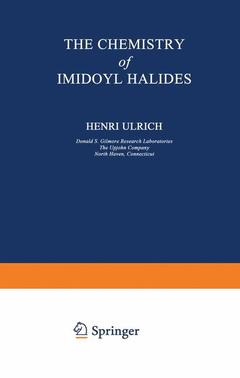Primarily, the aim of this book is to provide a reference work for senior students and research workers engaged in the synthetic aspects of chemistry. The various classes of compounds under discussion provide useful interme diates for the synthesis of numerous nitrogen-containing derivatives. Imidoyl halides are also intermediates in several classical name reactions, such as the Gattermann, Houben-Hoesch, and Vilsmeier-Haack syntheses of aldehydes and ketones, the Beckmann rearrangement, and the v. Braun degradation. Some imidoyl halides have shown interesting agricultural activities, and the generation of highly reactive species (ketenimines, nitrile oxides, nitrile imides, carbodiimides, etc.) from imidoyl halides has contributed to the study of polar cycloaddition reactions. To enable researchers to utilize this chemistry without consulting the original references, I have included a number of selected working examples. This procedure will facilitate the transformation of written information into well designed experiments, especially since part of the cited literature is not readily available. The book is organized around classes of imidoyl halides, with synthesis and chemistry discussed in an orderly fashion. The physical properties of the known imidoyl halides are listed in tables, and I have attempted to draw attention to the more recent literature. The one or two references provided for each compound represent those which best describe its physical constants and synthesis.



